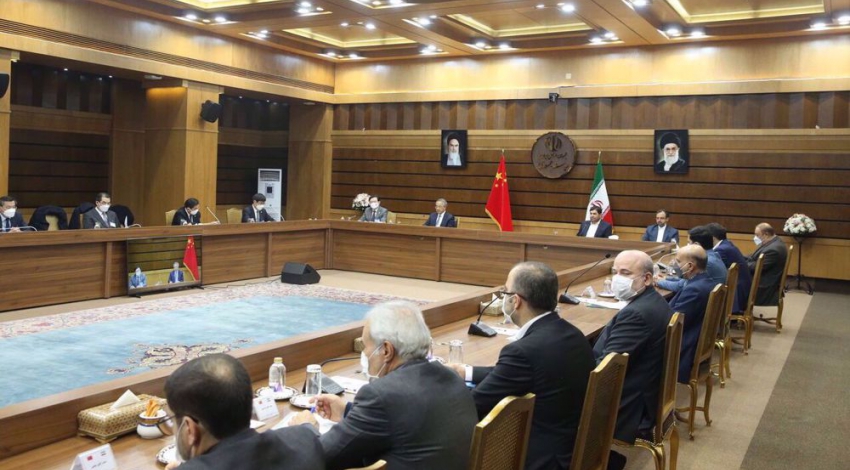Tuesday 13 December 2022 - 21:31
Story Code : 402499
Minister: Iran, China finalize MoUs to implement 25-year deal
�Executive measures in the field of oil and gas, banking, investment and strategic projects were put on the agenda to be approved in the next meeting of the presidents of the two countries in the new future,� Fars news agency quoted him as saying Tuesday.
The agreements were reached during his meeting which vice premier of the People's Republic of China Hu Chunhua who is currently visiting the Islamic Republic.
�Given that the political and economic will of the two countries is to improve their capacities despite the international restrictions and sanctions pressures, we has seen a nearly 20% increase in trade and the outlook for 2023 is much higher than which is now,� Khandozi said.
Iran and China have agreed to develop a 25-year roadmap for strategic partnership, with the idea first conceived in the 1990s.
According to economists, it represents "a potentially material shift to the global balance of the oil and gas sector� and could mark a "seismic shift in the global hydrocarbons sector� where no US dollars would be involved in commodity transaction payments.
Relations between Iran and China go as far back as the ancient Silk Road, but they are gaining strategic significance because the West�s refusal to work with Iran under the US pressure and its efforts to clip China�s wings and stop its economic and political rise is automatically pushing Tehran and Beijing into an alliance of sorts.
Since the 1979 Islamic Revolution, American businesses have been prevented from trade with Iran, while their European counterparts have withdrawn amid US threat of sanctions. That has helped Chinese companies move in and fill the void.
As a result, Iran and China have forged a unique partnership which is almost impossible or not easily viable with any other country.
China is still Iran�s biggest oil client despite Washington�s bid to bring Tehran�s exports down to zero.
Iran�s rail sector had become a magnet for rail engineering and rolling stock firms from all over the world before US sanctions in 2018 forced them to withdraw. The pullout left the Chinese with a less contested business terrain.
China�s close involvement in the build-out of Iran�s manufacturing infrastructure is seen entirely in line with its mammoth One Belt, One Road initiative.
By PRESS TV
# Tags











